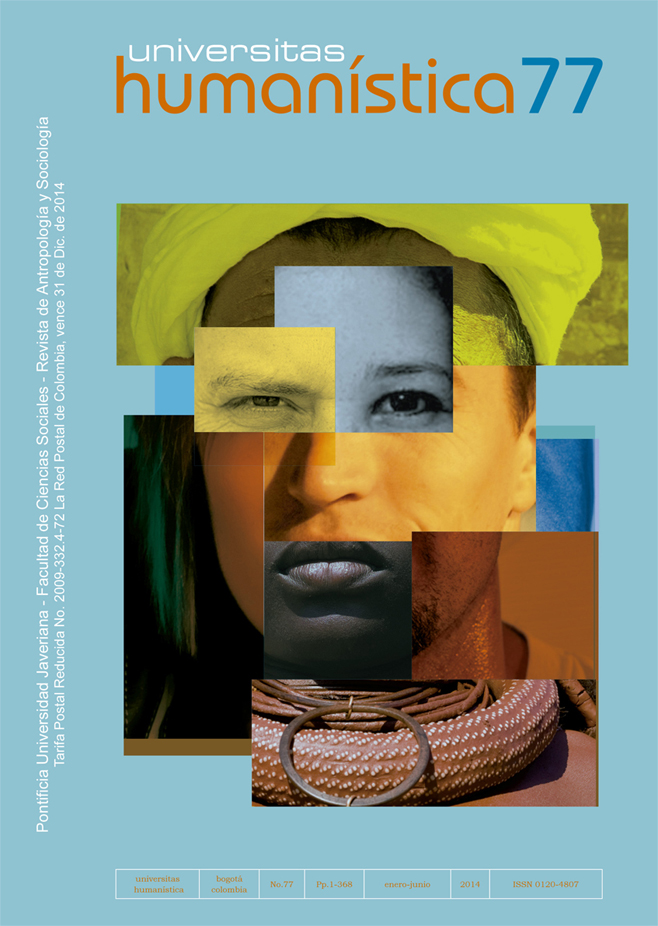Abstract
This article is about the process of ethno-racialization in the multicultural era specifically in the context of Colombia nowadays. A wide comprehensive theoretical framework is taken as the basis (racialization, structural racism, multiculturalism, intersectionality, everyday racism). The analysis of primary sources and in-depth interviews to young African descents from Bogotá are used to argue that multiculturalism, as it has been developed on a legislative level and in the colombian public policies, is not a challenge for the racialized foundations of power and social relations and that there is a variety of mechanisms that seek to defend the privileges of the white-mestizo. However and simultaneously, we suggest that multiculturalism provides a number of opportunities to question the racialized social and political system and to develop strategies of resistance.

This journal provides immediate open access to its content on the principle that making research freely available to the public, encourages greater global exchange of knowledge.
The journal Universitas Humanística is registered under a Creative Commons Attribution 4.0 International Public License. Thus, this work may be reproduced, distributed, and publicly shared in digital format, as long as the names of the authors and Pontificia Universidad Javeriana are acknowledged. Others are allowed to quote, adapt, transform, auto-archive, republish, and create based on this material, for any purpose (even commercial ones), provided the authorship is duly acknowledged, a link to the original work is provided, and it is specified if changes have been made. Pontificia Universidad Javeriana does not hold the rights of published works and the authors are solely responsible for the contents of their works; they keep the moral, intellectual, privacy, and publicity rights.
Approving the intervention of the work (review, copy-editing, translation, layout) and the following outreach, are granted through an use license and not through an assignment of rights. This means the journal and Pontificia Universidad Javeriana cannot be held responsible for any ethical malpractice by the authors. As a consequence of the protection granted by the use license, the journal is not required to publish recantations or modify information already published, unless the errata stems from the editorial management process. Publishing contents in this journal does not generate royalties for contributors.


